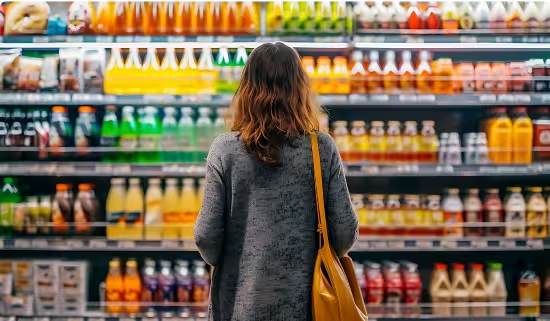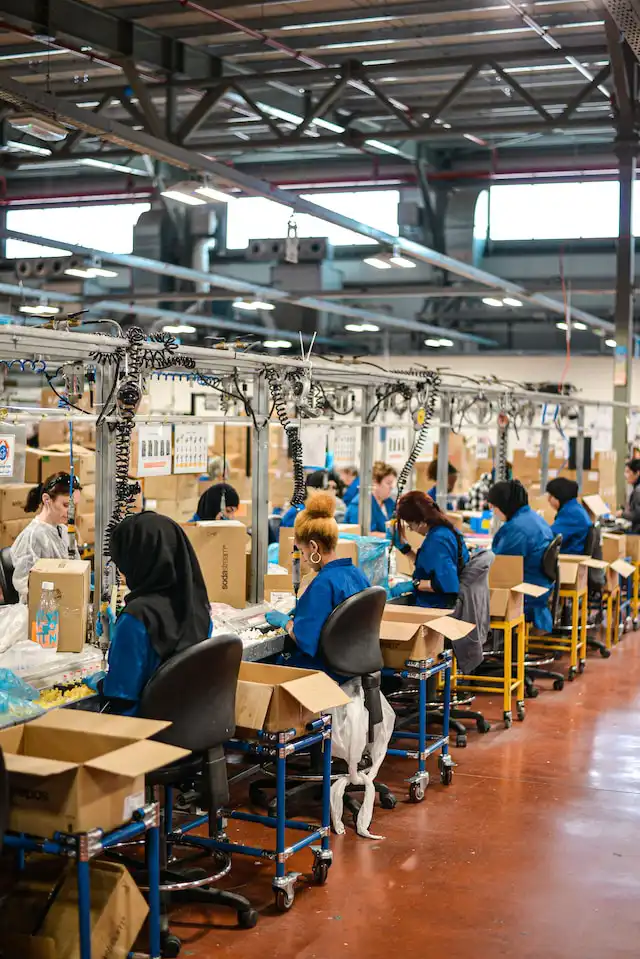
India Online Grocery Market Outlook to 2019
High Growth Prospects due to Increasing Internet Coverage and Smart Cities Emergence
Region:Asia
Product Code:KR291
February 2015
104
About the Report
The report titled “India Online Grocery Market Outlook to 2019 - High Growth Prospects due to Increasing Internet Coverage and Smart Cities’ Emergence” provides a comprehensive analysis of various aspects such as market size, segmentation and future projections of the online groceries market of Indonesia. This report also offers prevalent trends and developments in industry, government regulations, SWOT analysis, external environment analysis, Porter’s five force analysis, and challenges in the industry. The report also covers the competitive landscape of the industry, in which the information related to the players operating in this industry has been comprehensively presented. This has been complemented with the major investment deals that have been finalized in the industry. It also includes information on the major macroeconomic indicators affecting the market. Moreover, the report also offers information regarding the supply chain models operating in the market and the domestic and international trends in the online groceries market.
The groceries segment holds a share of 60% out of the total market value of Indian retail market as food is the basic requirement of all the people irrespective of their class or society status. Online groceries market refers to the purchase and sale of groceries over the internet. Although, this process was initially implemented in the west, but this industry has been an emerging industry in India. The first firms that were founded in this segment of total retail were formed in 2011. Since then this industry has expanded at a commendable pace and has attracted huge investments by venture capitalists and angel investors alike.
The major players in the market that lead from the front are Big Basket, Aaramshop, Zopnow and Local Banya. These firms have been operational for about three years each and have grabbed a large market share in their respective cities of operations. The rise in the public’s demand for convenience shopping as well as the penetration of internet among the population has led to the growth of this industry at a fast pace. The market also thrives as it has been able to offer steep discounts on the prices of the products offered and lure customers away from the brick and mortar shops to online grocery shopping.
Online groceries offer several advantages for the users of their services, according to the service providers. As per them, the customers can enjoy a sense of ease as this service enables them to purchase their monthly top-up of groceries, fruit and vegetables while in the comfort zone of their homes. This also spares the customers from the hassle of carrying their bags, prevents them to face parking and traffic problems, as well as the queues in their local markets or supermarkets. The online stores also promise a wider variety of products to choose from, about 10,000 stock keeping units whereas an average traditional storehouse offers product range below 1,000 SKUs which puts it at a disadvantage to the online grocers.
The share of Big Basket has been the largest among the businesses running as the top-line is fuelled by growth in the segment as well as its presence in 4 different cities. The total GMV for Big Basket was INR ~ million in 2014 which is expected to rise in the future. This aided the firm to grab a market share of ~% and placed it firmly atop the ladder. Zopnow is the second largest player which has been able to capture a large customer base in Bangalore with the help of its active and attractive website and the smart-phone app. Zopnow has a total GMV of INR ~ million in FY’2014. The company is gaining traction in Mumbai and Hyderabad.
Key Topics Covered in the Report:
- The market size of Indian Online Groceries Market in terms of GMV
- The market size of Indian Online Groceries Market in terms of Number of Annual Orders
- Market segmentation of India’s Online Groceries Market on the basis of Product Category
- Market segmentation of India’s Online Groceries Market on the basis of Origin of Food Products
- Market segmentation of India’s Online Groceries Market on the basis of Fresh or Processed Goods (Domestic)
- Market segmentation of India’s Online Groceries Market on the basis of Volume of Brands Purchased
- Market segmentation of India’s Online Groceries Market on the basis of Demand from Cities of Operation
- Trends and Developments in India’s Online Groceries Market
- SWOT analysis of India’s Online Groceries Industry
- Porter’s 5 Forces Analysis of India’s Online Groceries Industry.
- Company profiles in India’s Online Groceries Market.
- Competitive Landscape of India’s Online Groceries Market
- India Online Groceries Market Future Outlook and Projections
Products
Online grocery, food and beverages, organic food, vegetable, Processed Goods, GMV and number of annual orders, Volume of Brands Purchased, Fruit, Vege
Companies
Big Basket, Zopnow, Local Banya, Godrej Nature's Basket, Aaramshop, Ekstop, Jiffstore
Table of Contents
1. Indian Retail Market Introduction
1.1. Indian Retail Market Size by Customer Expenditure, FY'2009-FY'2014
1.2. India Retail Market Segmentation by Type of Category, FY'2014
2. India Online Groceries Market Introduction
3. International Trends and Developments in Online Groceries Market
Major Online Retailers Enter Online Grocery Segment
Shifts in Operating Models of Online Grocers
Growing Use of Pick-Up Points
Increase in the Proportion of Total Grocery Shopping
Surfacing of Hybrid Models
Private label
4. Comparative Analysis of Online Groceries and Traditional Groceries
4.1. Growth Drivers in the Market
5. Customer Profile for Online Groceries in India, FY'2014
Gender-wise Split of Online Grocery Shoppers
Age-wise Split of Online Grocery Shoppers
Preference for Online Shopping
Mode of Payment Preferred for Online Groceries
Frequency of Online Grocery Shopping
6. Business Models Prevalent in Online Groceries
6.1. International Models for Online Groceries Market
6.1.1. Pick-up-Point based model
Overview and Supply Chain
6.1.2. Dark Stores
Overview and Supply Chain
6.2. Indian Models for Online Groceries Market
6.2.1. Hub and Spoke Model
Overview and Supply Chain
6.2.2. Local-Channel Model
Overview
6.2.3. Hybrid Model
Overview and Supply Chain
7. Emergence of Online Grocery Market in India
7.1. Reasons for Online Grocery Shopping in India
8. Challenges for New entrants in Online Groceries Market in India
Alteration in Business Model For Different Cities
Competition from Local Stores
Difficult for New Players to Attract Investments
Lack of Trust in Online Mode of Shopping
Existing Players in the City
9. Challenges for Existing Firms in Online Grocery Market in India
Difficult to Expand Operations to New Areas
High Logistics Costs Due to Perishable Nature of Goods
Low Margins on Sales and High Costs of Operations
Difficult to Replace Existing Mode
Focus Towards Maintenance of Quality
Small Order Size
Complaints Against Online Retailers
10. India Online Groceries Market Size, FY'2012-FY'2014
10.1. By Gross Value Merchandise, FY'2009-FY'2014
10.2. By Number of Annual Orders, FY'2009-FY'2014
11. India Online Groceries Market Segmentation, FY'2014
11.1. By Product Category, FY'2014
11.2. By Origin of Food Products (Domestic or Imported), FY'2014
11.3. By Fresh or Processed Goods (Domestic), FY'2014
11.4. By Volume of Brands Purchased, FY'2014
11.5. By Demand from Major Cities, FY'2014
12. SWOT Analysis of Online Grocery Industry
13. External Environment for India Online Grocery Industry
13.1. Political Environment
13.2. Technological Environment
13.3. Social Environment
Steps to Initiate an E-Commerce Company in India
14. Porter's Five Forces Analysis of India Online Grocery Industry
Competitive Rivalry within the Industry
Threats of New Entrants
Threats of Substitutes
Bargaining Power of Customers
Bargaining Power of Suppliers
15. Major Players Company Overview and Operating Performance in India Online Grocery Market
15.1. Big Basket
15.2. Local Banya
15.3. AaramShop
15.4. Ekstop
15.5. Jiffstore
15.6. ZopNow
15.7. Competitive Landscape in India's Online Groceries Market
16. Trends in the India Online Grocery Market
17. Cyber Laws in India E-Commerce Industry
18. Market Share of Major Players in India Online Groceries Market, FY'2014
18.1. By Gross Value Merchandised, FY'2014
18.2. By Number of Orders, FY'2014
19. Recent Investments in Online Groceries Market
20. India Online Groceries Market Future Outlook and Projections, FY'2015-FY'2019
20.1. Entry of New Players
20.2. Upcoming Smart Cities
20.3. 'Make in India' Initiative
20.4. Better Internet Facilities
20.5. Growth of Investors' Trust in Market
21. Macroeconomic Indicators Affecting India Online Groceries Market
21.1. Public Disposable Income, FY'2009-FY'2019
21.2. Internet Users in India, FY'2009-FY'2019
21.3. Smart-phone Penetration in India, FY'2009-FY'2014
21.4. Indian Online Retail Market Size, FY'2009-FY'2019
21.5. Population ' 15-64 Year Olds, CY'2009-CY'2019
21.6. Urban Population in India, CY'2009-CY'2019
22. Appendix
22.1. Market Definition
22.2. Abbreviations
22.3. Research Methodology
Data Collection Methods
Approach
Variables (Dependent and independent)
Multi Factor Based Sensitivity Model
Final Conclusion
22.4. Disclaimer
Why Buy From Us?

What makes us stand out is that our consultants follows Robust, Refine and Result (RRR) methodology. i.e. Robust for clear definitions, approaches and sanity checking, Refine for differentiating respondents facts and opinions and Result for presenting data with story

We have set a benchmark in the industry by offering our clients with syndicated and customized market research reports featuring coverage of entire market as well as meticulous research and analyst insights.

While we don't replace traditional research, we flip the method upside down. Our dual approach of Top Bottom & Bottom Top ensures quality deliverable by not just verifying company fundamentals but also looking at the sector and macroeconomic factors.

With one step in the future, our research team constantly tries to show you the bigger picture. We help with some of the tough questions you may encounter along the way: How is the industry positioned? Best marketing channel? KPI's of competitors? By aligning every element, we help maximize success.

Our report gives you instant access to the answers and sources that other companies might choose to hide. We elaborate each steps of research methodology we have used and showcase you the sample size to earn your trust.

If you need any support, we are here! We pride ourselves on universe strength, data quality, and quick, friendly, and professional service.















